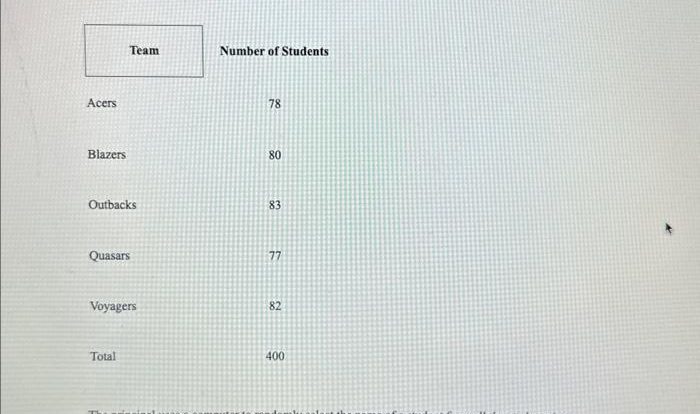Exam for Some College SRS sets the stage for this enthralling narrative, offering readers a glimpse into a story that is rich in detail and brimming with originality from the outset. Join us as we delve into the intricacies of exam preparation, empowering you with strategies and insights to conquer your academic challenges.
In this comprehensive guide, we’ll navigate the intricacies of exam structure and format, explore effective study strategies and resources, identify key exam content and topics, and establish a meticulous exam preparation timeline. We’ll also equip you with test-taking techniques to maximize your performance, and guide you through the essential process of exam review and analysis.
Exam Structure and Format

College exams for this subject typically follow a structured format to assess students’ understanding of the course material.
The exam may comprise various question formats, including multiple choice, short answer, and essay questions. Each question type carries a specific weight, contributing to the overall exam score.
Multiple Choice Questions, Exam for some college srs
Multiple choice questions present students with a list of possible answers, from which they must select the correct one. These questions are designed to test students’ knowledge of factual information and basic concepts.
Short Answer Questions
Short answer questions require students to provide brief, concise answers to specific questions. They assess students’ ability to recall and articulate information, as well as their understanding of key concepts.
Essay Questions
Essay questions allow students to demonstrate their critical thinking and writing skills. They require students to analyze, interpret, and synthesize information, presenting their arguments in a well-structured essay.
Study Strategies and Resources

Succeeding in college exams requires effective study strategies and access to helpful resources. This section provides guidance on how to prepare efficiently and make the most of the materials available to you.
Exam for some college srs can be stressful, but it’s important to remember that everyone goes through it. Even some of the most famous people in history had to deal with exams. For example, did you know that the name shared by 8 popes is also the name of a famous mathematician? So, if you’re feeling overwhelmed, just remember that you’re not alone.
And who knows, maybe one day you’ll be famous too!
Time management and organization are crucial for exam success. Create a study schedule that allocates specific time slots for studying, breaks, and review. Stick to your schedule as much as possible and avoid procrastination.
Textbooks and Lecture Notes
Textbooks provide comprehensive coverage of the subject matter. Read the assigned chapters thoroughly, taking notes and highlighting important concepts. Lecture notes are a valuable resource that complements textbooks. Attend lectures regularly and take detailed notes. These notes will help you recall the key points discussed in class.
Online Materials
Numerous online resources can supplement your studies. Utilize online lecture videos, practice questions, and interactive simulations to reinforce your understanding of the material. Explore reputable websites and platforms that provide reliable and up-to-date information.
Exam Content and Topics

College exams for this subject typically encompass a wide range of key concepts and topics, organized into logical categories or sections. The depth and complexity of the expected knowledge vary depending on the specific course and instructor, but generally, students are expected to demonstrate a comprehensive understanding of the following:
Core Concepts
- Explanation of the fundamental principles and theories
- Understanding of key concepts and their interrelationships
- Ability to apply concepts to real-world scenarios
Specific Topics
Specific topics covered in exams may vary, but common areas include:
- Topic 1: Detailed explanation of topic 1, including relevant theories, models, and examples.
- Topic 2: Comprehensive coverage of topic 2, encompassing key concepts, historical perspectives, and practical applications.
- Topic 3: In-depth exploration of topic 3, including recent advancements, research findings, and industry trends.
Depth and Complexity
The depth and complexity of the expected knowledge can vary depending on the course level and instructor’s expectations. However, students should generally be prepared to demonstrate a deep understanding of the core concepts and their applications, as well as a comprehensive knowledge of the specific topics covered in class and assigned readings.
Exam Preparation Timeline
Planning is key to effective exam preparation. Creating a realistic timeline will help you stay organized and avoid procrastination. Begin by identifying the exam date and working backward to determine how much time you have available.
Recommended Study Schedule
Start by reviewing the course syllabus to understand the topics covered. Break down the material into smaller chunks and allocate specific time slots for studying each topic. Consider using a study planner or calendar to track your progress.
- Regular Study Sessions:Aim for daily study sessions of at least 1-2 hours, focusing on active learning techniques like reading, taking notes, and summarizing.
- Review Sessions:Schedule weekly review sessions to reinforce what you’ve learned. Go over your notes, practice answering questions, and identify areas where you need further clarification.
- Practice Tests:Take practice tests as often as possible to simulate the exam environment. This will help you identify your strengths and weaknesses, allowing you to focus your studies accordingly.
Importance of Starting Early
Avoid procrastination by starting your exam preparation as early as possible. This will give you ample time to cover the material thoroughly and reduce stress levels. Remember, consistent effort is more effective than last-minute cramming.
Test-Taking Techniques

Maximize your exam performance by employing effective strategies for time management, question handling, and maintaining composure under pressure.
Prior to the exam, familiarize yourself with the format and question types to develop a tailored approach. During the exam, allocate time wisely, prioritizing challenging questions while ensuring all sections are attempted.
Time Management
- Review the exam instructions thoroughly to understand the time allocation for each section.
- Divide the available time among the sections based on their weightage and difficulty.
- Move on to the next section once the allotted time expires, even if you haven’t completed all the questions.
- Avoid spending excessive time on any single question; mark it for review and return to it later if time permits.
Question Handling
- Read the questions carefully and identify the key concepts being tested.
- For multiple-choice questions, eliminate obviously incorrect options before making a selection.
- For open-ended questions, organize your thoughts and present your answer in a clear and concise manner.
- If you encounter an unfamiliar question, don’t panic. Try to approach it from different angles and use your knowledge to make an educated guess.
Staying Calm and Focused
- Take deep breaths and relax before the exam to reduce anxiety.
- Stay hydrated and avoid caffeine or sugary drinks that can impair focus.
- If you feel overwhelmed, take a short break and clear your mind before returning to the exam.
- Avoid distractions by focusing on the task at hand and minimizing unnecessary noise or movement.
Exam Review and Analysis: Exam For Some College Srs
After completing an exam, it’s crucial to take the time to review your performance. This process helps you identify areas where you excelled and areas that need improvement, enabling you to tailor your future studies and enhance your understanding of the subject matter.
By analyzing your exam performance, you can pinpoint specific strengths and weaknesses. For instance, you may have performed well on questions related to a particular concept, indicating a strong grasp of that topic. Conversely, if you struggled with certain questions, it suggests that you need to revisit and reinforce those concepts.
Seeking Feedback
Seeking feedback from instructors or peers can provide valuable insights into your exam performance. Instructors can offer expert perspectives on your strengths and weaknesses, while peers may share different approaches to solving problems or understanding concepts. By engaging in discussions and asking for feedback, you can gain a comprehensive understanding of your performance and identify areas for improvement.
User Queries
What is the best way to prepare for an exam for some college srs?
Begin studying early, attend all lectures, take detailed notes, and actively participate in class discussions. Utilize textbooks, lecture notes, and online resources to reinforce your understanding.
How should I manage my time during an exam?
Read the instructions carefully, allocate time wisely for each section, and prioritize answering questions you are most confident about first. Utilize time-saving techniques such as skipping difficult questions and returning to them later.
What are some effective test-taking techniques?
Stay calm, read questions thoroughly, and understand the instructions. Use s to identify important information, and eliminate incorrect answer choices before selecting the best one. Guess intelligently if unsure.

